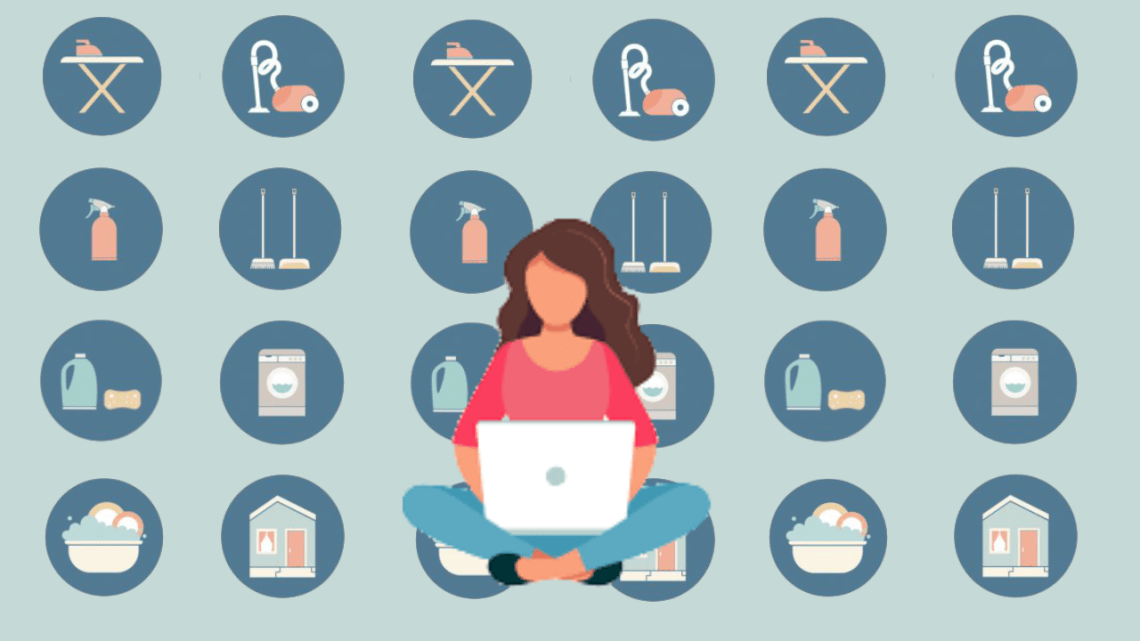When it comes to household chores, womxn are seen as the one who are in charge and it’s her duty not only ensure the smooth functioning of household chores but also tend to everyone in the house from children to the adults. House management is one of her full time jobs irrespective of whether or not she has a full – time professional job.
Even though today a growing number of people share the workload including household tasks the womxn is seen as the one responsible, the manager of sorts. She has to delegate the work and tell the other members of the house what is to be done, and do her share of those tasks also. We have all seen and really liked Ariel’s initiative of #ShareTheLoad. But, there is a problem with this narrative of being the manager or the only responsible member of the household chores, even if the physical workload is shared – let me explain.
A womxn will constantly have to keep reminding others as well as themselves of the task. So apart from taking responsibility for her own chores, she is also reminding their partner, children, parents of the chores to do. From ironing a shirt, a school project due in a week, my or health checkup to be done, they are the human reminders that go off when the phone apps don’t work. This puts a lot of mental load on them. Many people might even say “hey, you never asked me to do the work or asked for my help!” Here, the member denies to take up the mental load of remembering what to do and only sees himself as someone who can assist or do the work after a lot of reminders.
So the womxn not only have to remember their work related agendas, but also have to take the house chores, their family tasks into consideration. That is a lot of mental load! While they remind others of the work to be done, they are also doing at least half of the house chores herself.
They are managers of the house – but also the employees. Taking this analogy forward, the managers in an organisation have a role of overseeing the employees, their tasks, delegating and assisting in the projects themselves if need be. They seldom do the task from start to finish, as well as remind others to do their tasks. The more individuals a manager oversees, the less they are involved in actually doing tasks themselves. If a manager like this did have so many job responsibilities, he would surely be extremely burnt out right? Even thinking about that amount of workload might make us feel tired!
Now, imagine womxn having to have that workload, plus also other job responsibilities. This comes from the ideology that a woman is the homemaker of the house… even if she is the sole breadwinner. This might or might not be intentional but it has a lot to do with the way we are told to socialise since we were little. Society tells us that only if a woman is able to take care of her house and her family, if only she can cook, make round rotis and iron clothes well will she be successful in life. A man is not taught to take care of the house like a woman is, he has lived in an environment where he is told what to do in the house, which is mostly assisting. While the womxn are portrayed as the ones nagging the men to do work – making them leave their professional work aside.
While womxn are more present today in the paid workforce than others before they are still considered the CEO of the household. It is true that in certain households, in most houses, we do share the load. But while helping and assisting is good sharing of the physical load, the mental load is completely ignored. If you are asking yourself how to make this better, the answer is to divide the mental load.
Make a timetable of things to be done together, and don’t put the responsibility on the womxn of the house. Make sure you do your tasks, and if the womxn keep reminding you, let them know that it is not their responsibility to!
Make a boundary! If the womxn ends up doing the work even after it was delegated to someone else, bring up the solution of doing chores that’s yours. Only take out your clothes and dry them – let the other members from the family do the rest.
For us to get to be closer to parity, it is important for men to feel their own home is their equal responsibility too and to not just be an assistant in their houses.
Meet The Author:

Zahra is and always will be the optimist, the hoper of far-flung hopes and the dreamer of improbable dreams.She believes that imagination and stories are the greatest resources for humanity. She loves everything science fiction and likes learning about philosophy and history along with mental health of course. She cares for herself by treating herself with dark chocolate, walks and painting her versions of starry nights and yin and yang koi fish symbols.







